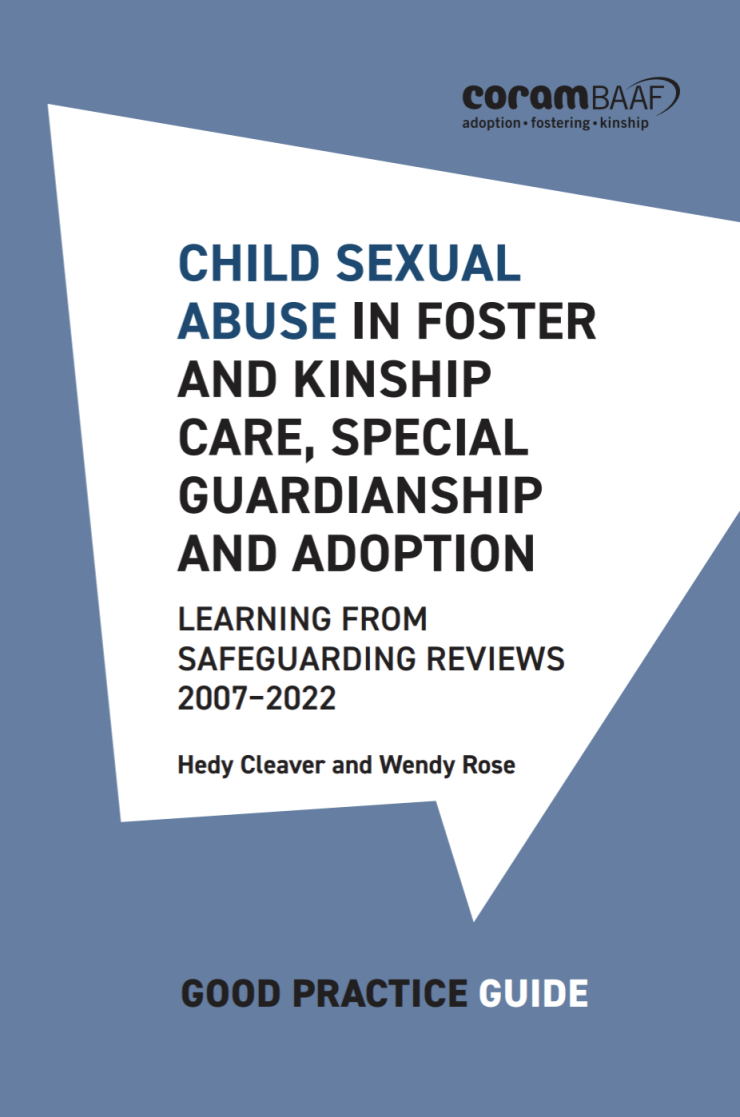
Child sexual abuse in foster and kinship care, special guardianship and adoption
For most children and young people who cannot remain living safely at home, foster care, kinship care, adoption, and special guardianship provide safe and caring families. However, for a few this is not the case – children can and do experience sexual abuse while in care.
Our new Good Practice Guide, Child sexual abuse in foster and kinship care, special guardianship and adoption: Learning from safeguarding reviews 2007–2022, provides useful information on the signs and indicators of child sexual abuse and its long-term consequences, and how children can be better protected. Cases and extracts from review reports, coupled with the voice of the child, bring these to life.
This is the first study to focus on children who were sexually abused by members of the household or family friends while living in care or having been adopted. The authors were inspired to write this book following their earlier study on child safeguarding reviews, which highlighted the difficulties social workers can face in recognising hidden child sexual abuse and helping affected children to recover.
The Good Practice Guide provides full information about the study and its findings, while the shorter companion guide highlights key themes and practical ways in which social workers, as well as health and education professionals, can improve their practice to help keep children safe. These two guides are designed as complementary publications.
The authors, Professor Hedy Cleaver and Wendy Rose OBE, have extensive experience in the field and have written and been involved in numerous publications that have had a significant impact on UK policy and practice around children and families.
This new Good Practice Guide and its companion offer invaluable insights into one of the most challenging areas of safeguarding children. With a clear focus on the vulnerability of children, the lasting impact on their behaviour and emotions, and the barriers to speaking out, the guides provide practical strategies for professionals to address these challenges.
They also shed light on how perpetrators operate and the critical importance of reflective supervision to counter the risks of fixed thinking. By equipping practitioners with evidence-based strategies and the voices of children who have endured abuse, these resources aim to empower professionals to better protect and support some of the most vulnerable children in care.
Jo Francis, Publications Manager, CoramBAAF.
For CoramBAAF, Hedy and Wendy have authored Safeguarding Children Living with Foster Carers, Adopters and Special Guardians: Learning from case reviews 2007–2019 and its companion, A guide to reflective practice (2020), and also Caring for children who have experienced domestic abuse: A guide to supporting foster carers, adopters and kinship carers (2022).
